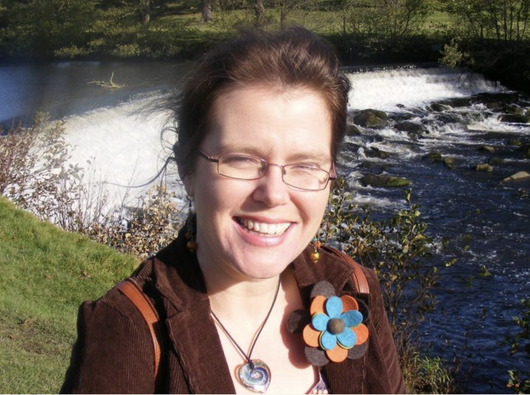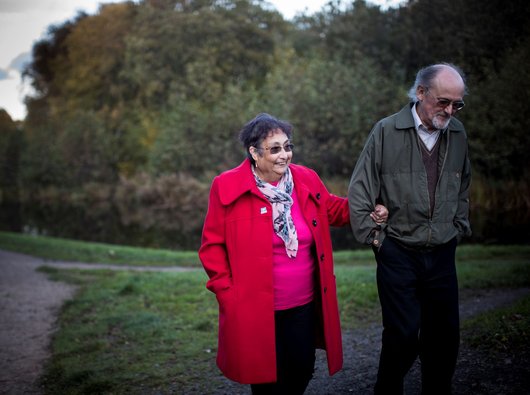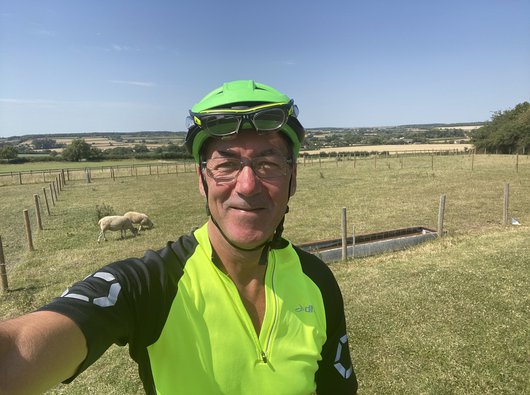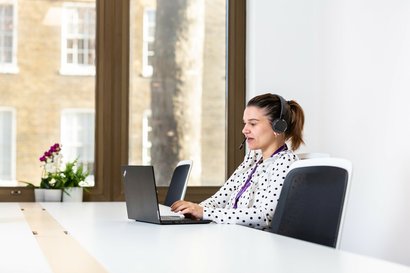Help with costs
Worrying about money can be an extra stress when you've been diagnosed with blood cancer. Find out about the benefits and grants you might be entitled to claim and where to go for more support.
Things you need to know
Whether you’re living with or after leukaemia, lymphoma, myeloma, or any other type of blood cancer:
- Financial support is available. This page contains information about benefits you may be entitled to, help with energy and food costs, and other sources of support with the cost of living.
- Many workplaces offer employee assistance programmes (EAPs) which may provide counselling sessions free of charge. This could help if money worries are making you anxious or panicky, and should still be available to you if you’re working from home or are on sick leave.
- You're not alone, and there's no need to be ashamed if you're struggling with the cost of living. Contact us, or join our online community forum to talk to others in a similar position and find out what helped them.
Hidden costs of blood cancer
Although money may not be the first thing on your mind when you’re diagnosed, you might experience some extra costs as a result of having blood cancer. These are sometimes called “hidden costs”, and can include things like:
- paying for petrol, taxis or public transport to visit the hospital regularly
- needing to keep your heating on for longer to stay warm
- paying for childcare or extra support around the home
- rising insurance premiums.
You might also need to take some time off work to manage your treatment or symptoms, and this can reduce your income at a time when your outgoings are increasing.
It’s understandable to be worried about how you’re going to afford to pay for the things you need, but there is help available. This page contains more information about the types of benefits and grants you might be eligible for, as well as some tips on how to save money and where to turn for more support.
We also have some separate information about working with blood cancer, including what to say to your employer about blood cancer and how your workplace HR team might be able to help you.
"I was getting Personal Independence Payments (PIP) and Universal Credit, and through that I was able to join a business start-up scheme. I got mentoring and a little bit of extra money while I was setting it up."
Read Joanna's story about the changes she made to her working life, and how claiming benefits helped.

Benefits and grants
Blood cancer counts as a disability in the UK, which may mean you’re entitled to financial support. You can also claim benefits if you’re on a low income for any period of time.
Lots of people don’t realise that they are eligible for benefits, but they can make a big difference and help reduce your money worries. You might be able to claim even if you haven’t received any benefits before, or aren’t usually entitled to anything – the money is there to help people like you.
Possible benefits you could get include:
- Disability-related benefits – These include Personal Independence Payment, Universal Credit, Adult Disability Payment and Attendance Allowance.
- Carers benefits – If you care for someone with blood cancer, you might be able to claim Carers Allowance.
- Low-income benefits – These include Universal Credit, Housing Benefit and Council Tax Reduction.
We've mentioned these benefits to give you an idea of what you might be able to claim, but there are lots more as well. It's worth using a benefits calculator to see which ones may be available to you.
If you already receive benefits and need to go into hospital, you should tell the office that pays your benefits as soon as possible.
They may stop or reduce your benefits in future if you do not report a hospital stay.
Get help with benefits
The process of applying for benefits can feel overwhelming, especially if you're dealing with side effects of blood cancer and treatment like fatigue and brain fog. But there are people who can help:
- Ask your GP, clinical nurse specialist or doctor to look at the forms with you – They can help you decide what to say in your application, especially if you have to explain any complex health or medical needs. They can also provide a letter of support or information to include with your application.
- Call a helpline – You can contact Citizens Advice on 0344 411 1444. Macmillan Cancer Support also have specialist benefits advisers on 0808 808 00 00.
- Ask your local council – Many councils have a welfare rights team that can help with benefits, or they can tell you about services that can help in your local area. Find your local council.
- Find benefits help near you – Turn2us has an advice finder where you can search for services near you.
- Family and friends – If you’re feeling overwhelmed, it’s OK to ask for help. Could a friend or family member help you find out about benefits or fill in forms?
"I kept a log of people I spoke to about benefits and copies of any letters and emails we exchanged. I found this helped me stay on top of everything."
Read Louise's story about how she accessed the financial support she needed after getting diagnosed with Hodgkin lymphoma.

Charity grants
There are charities that offer grants to people with blood cancer. Follow the links below to read more and find out if you’re eligible.
- Anthony Nolan offer one-off grants for people who've have had, or are due to have, any type of stem cell transplant.
- Leukaemia Care and Leukaemia UK are offering grants through their Cost of Living Fund.
- Young Live vs Cancer offer grants for people diagnosed aged 24 or under and their families.
You can search for other charitable grants on the Turn2Us website.
Free prescriptions
In England, you're entitled to a medical exemption certificate if you're having treatment for:
- cancer
- the effects of cancer
- the effects of cancer treatment.
The medical exemption certificate allows you to get all your prescriptions for free, even ones that are unrelated to cancer.
To get a medical exemption certificate, ask your GP surgery or hospital doctor for the form. The certificate lasts for 5 years. You can renew it after 5 years if you still qualify.
Prescriptions are free for everyone living in Northern Ireland, Scotland and Wales.
Help with travel costs
You may have to travel to the hospital or a treatment centre regularly, and costs can quickly add up. Here are some ideas about how to reduce the amount of money you spend on travel:
- Train, bus and coach discounts. If you’re receiving certain benefits, you can apply for a discounted railcard which may help towards travel costs. There are lots of bus and coach discounts available too for people with disabilities.
- Apply for a Blue Badge. You may be entitled to apply for a Blue Badge, which will give you free or discounted parking. It can also allow you to park in places which you might not be able to access otherwise.
- Free parking. Most hospitals in the UK offer free parking. In Scotland and Wales, all parking is free. In England and Northern Ireland, parking should be free for people with cancer, but this may not be well advertised at your local hospital. Ask your medical team for details.
- Claim back the cost of travel. If you’re on a low income or are receiving certain benefits, you may be able to claim back the costs of travelling to your appointments at hospital. Check with your medical team whether you’re eligible, and ask them how to apply for this.
- The Motability Scheme. The Motability Scheme enables people with certain disabilities to lease a new car, mobility scooter or powered wheelchair which could help you get around more easily.
- Check your tax exemptions. You may be exempt from paying car tax or road tax if you receive disability benefits. The exemption is applied automatically if you use a vehicle provided by The Motability Scheme, or you can apply for an exemption if you’re using your own vehicle.
"I’m in the fortunate position of not needing sick pay or other financial help, but when I started treatment my CNS gave me a pack with free parking permits and an exemption form for free prescriptions. These are very welcome whilst having treatment!"
Read Mel's story about coping with changes to your personal and professional life after a blood cancer diagnosis.

Ways to save money on bills
If you’re worried about how you’re going to pay your bills, or you’re struggling with increased costs, tell your supplier as soon as possible. Gas, electricity, water, mobile phone and internet providers can all offer support to help you pay, including payment plans and access to hardship funds. Let them know you have blood cancer, as suppliers should offer extra support for vulnerable customers.
Ofgem has more information about support available with energy bills. The Consumer Council for Water (CCW) has further details about support you can get from your water supplier.
It’s also worth telling your bank, as well as your landlord or mortgage provider, if you think you’ll struggle to make any payments related to your home. They may be able to work out a new payment plan with you, or even agree on a “payment holiday” where you stop making payments for a short period of time.
Help with the cost of food
If you’re struggling to afford food, there are places that can help. Don’t let shame or pride get in the way of using them. They exist to make sure no one goes hungry, and won’t judge you for needing support.
- Food banks give out free emergency food packages. They sometimes provide toiletries, sanitary products, cleaning products and pet food as well. Depending on the food bank you go to, you might need a referral: from a GP, school, social worker or Citizens Advice.
- Social supermarkets, also known as community supermarkets or community shops, these are shops that sell surplus stock from supermarkets for very reduced prices. Find out more about social supermarkets at MoneySavingExpert.
- Community fridges are spaces where anyone can get free, good quality food that would otherwise go to waste. You can search for your nearest community fridge at Hubbub.
- Community meal schemes aim to tackle food poverty, loneliness and food waste by offering free meals and a space to meet others. Find out more at Food Cycle.
- Your local council should be able to tell you more about food support in your area. If you have children, you can ask the council whether your family is eligible for free school meals. If you are, they’ll tell you how to apply. You can also ask your children’s school directly about any similar schemes they have, such as a Breakfast Club.
Funding disclosure
The following pharmaceutical companies have funded this information but have had no input into the content or direction of the project: Janssen-Cilag Ltd
Read about how we work with the pharmaceutical industry.
The information on this page was checked for accuracy by the Director of Finance and the Head of People and Organisational Development at Blood Cancer UK. Last reviewed May 2025. Next full review due May 2028. We may make factual updates to the information between reviews.

Contact our support services team
Our team of nurses and trained staff offer support and information to anyone affected by or worried about blood cancer. Contact them by phone, email, or on our Community Forum.
More About This